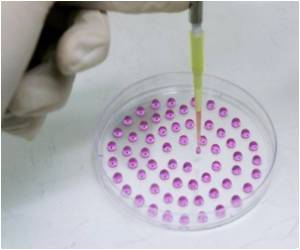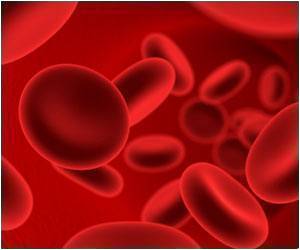
Mikkola and her team found that PDGF-B signaling in trophoblasts, specialized cells of the placenta that facilitate embryo implantation and gas and nutrient exchanges between mother and fetus, is vital to maintaining the unique microenvironment needed for the blood precursors. When PDGF-B signaling is halted, the blood precursors differentiate prematurely, creating red blood cells in the placenta, Mikkola said.
The study, done in mouse models, appears March 1, 2012, in the peer-reviewed journal Developmental Cell.
"We had previously discovered that the placenta provides a home for a large supply of blood stem cells that are maintained in an undifferentiated state. We now found that, by switching off one signaling pathway, the blood precursors in the placenta start to differentiate into red blood cells," Mikkola said. "We learned that the trophoblasts act as powerful signaling centers that govern the niche safe zone."
The study found that the PDGF-B signaling in the trophoblasts is suppressing production of Erythropoietin (EPO), a cytokine that controls red blood cell differentiation.
"When PDGF-B signaling is lost, excessive amounts of EPO are produced in the placenta, which triggers differentiation of red blood cells in the placental vasculature," said Akanksha Chhabra, study first author and a post-doctoral fellow in Mikkola's lab.
Advertisement
"The idea was, if we mess up the home where the blood stem cells live, how do these cells respond to the altered environment," Chhabra said. "We found that it was important to suppress EPO where blood stem cell expansion is desired and to restrict its expression to areas where red blood cell differentiation should occur."
Advertisement
Mikkola said the blood stem cells expanded in the placental niche first seed the fetal liver and, ultimately, the bone marrow. The pool of blood stem cells could be compromised if the cells begin to differentiate in the placenta.
"We've been able to learn in the last few years about the niche cells in the adult bone marrow, but we didn't know much about them during fetal development," Mikkola said. "All hematopoietic niches in the embryo are unique in their own way, the stem cells are made in one location, expand in another and differentiate somewhere else. This is the first study that identifies a key niche cell and a signaling pathway in the placenta that allows it to do what it was destined to do, create a safe zone for the blood stem cells."
The three-year study was funded by the National Institutes of Health, the California Institute of Regenerative Medicine, an Eli and Edythe Broad Center of Regenerative Medicine and Stem Cell Research Innovation Award and the Jonsson Cancer Center Foundation at UCLA.
"The discovery of PDGF-B signaling in the trophoblasts as an important regulator of local EPO levels in the placenta reveals a developmental stage and niche specific mechanism for regulating EPO expression, which is critical for governing the fates of blood stem cells during their developmental journey," the study states. "This work gives new insights into the goal of recreating the different types of hematopoietic niches in vitro as well as furthers our understanding of the etiology of developmental defects originating from the placenta."
Source-Eurekalert









